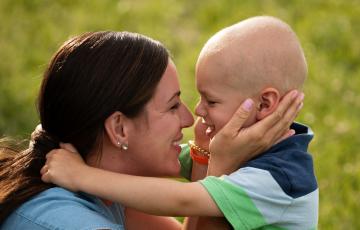Search Results
Filgrastim-sndz
Filgrastim-sndz is FDA approved as a biosimilar to US-licensed Neupogen® for the five indications for which Neupogen is approved:
- Patients with cancer receiving myelosuppressive chemotherapy;
- Patients with acute myeloid leukemia receiving induction or consolidation chemotherapy;
- Patients with cancer undergoing bone marrow transplantation;
- Patients undergoing autologous peripheral blood progenitor cell collection and therapy; and
- Patients with severe chronic neutropenia.
Impact of State Health Insurance Mandates on Affordability and Utilization of Fertility Preservation in Adolescent and Young Adults with Blood Cancers
Fertility preservation (FP) treatments can prevent infertility caused by blood cancer. However, FP costs are high, and these services are typically not covered by insurance, contributing to low utilization. New state laws require insurers to cover FP, but it is unknown if they improve access to care. Using national insurance data, this study will examine how much out-of-pocket costs remain, whether patients’ share of costs is like that of other cancer services, and whether and which types of laws increase use and affordability.Filgrastim
Filgrastim is FDA approved to
Zoledronic acid
Zoledronic acid is FDA approved to treat hypercalcemia (high levels of blood calcium) that may occur in patients with some types of cancer, including myeloma. It is also FDA approved along with chemotherapy to treat bone damage caused by myeloma or by cancer that began in another part of the body but has spread to the bones.

Young Advocate, Big Goals: Charlotte’s Story
Imagine going to the doctor for a cold only to learn you actually have leukemia. That’s how Charlotte's experience with blood cancer began in 2018.
“The doctor diagnosed it as strep throat,” Charlotte remembers. When the antibiotics didn’t work, she “went to another doctor who diagnosed it as something else.”
Dexamethasone
Dexamethasone, hydrocortisone, methylprednisolone and prednisone are FDA approved corticosteroids that are used to treat many medical problems, including some kinds of cancer.

